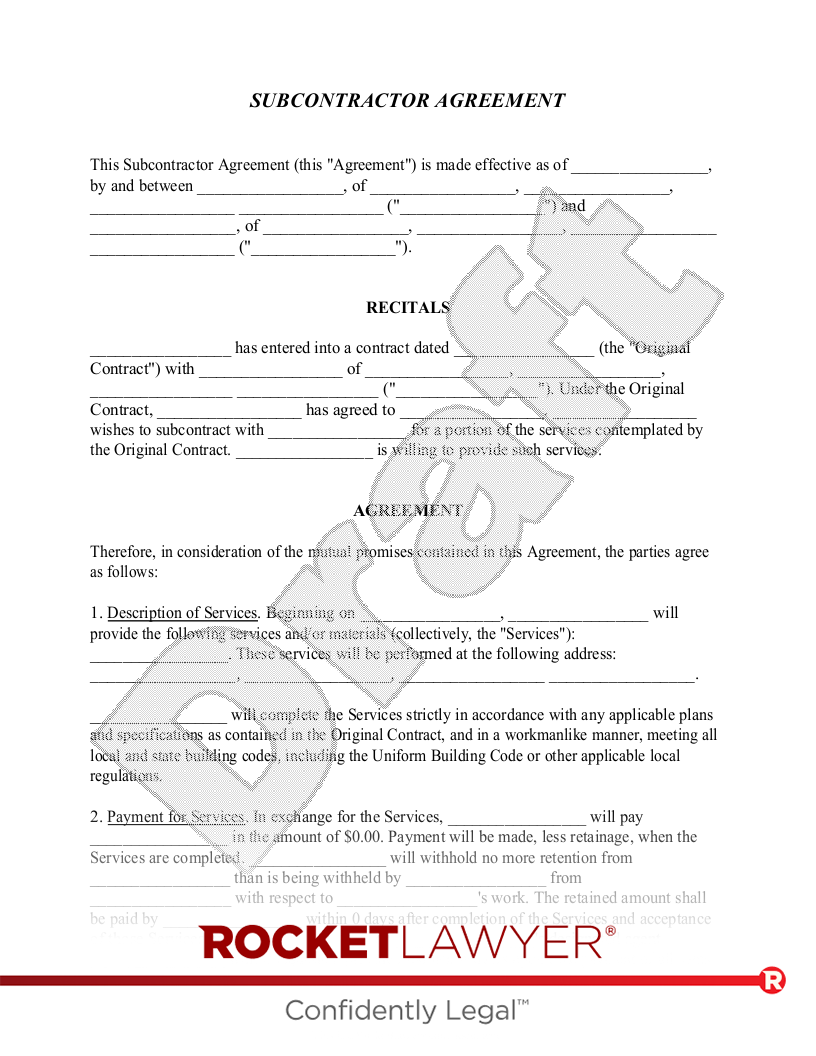Subcontractor Agreement
To protect both your business and the subcontractor's business, your working relationship should begin with a Subcontractor Agreement. Within the agreement, it's important to specify that the subcontractors aren't your employees, and that they're responsible for paying for their own benefits and taxes. The agreement should also include the scope of the project, the subcontractor's responsibilities, the pay rate, and any deadlines or milestones that must be met.
It's also a good idea to include a provision that would allow you or the subcontractor to terminate the contract given a certain amount of notice. You should also include other provisions, in case you fail to pay the subcontractor or their work is substandard. If the work is shoddy, you'll also need to specify which party will be responsible for correcting the work.
Other Important Things to Consider
Before hiring a subcontractor, there are a few other things that you'll need to do to protect your business:
- Certificate of insurance. It's a good idea to include a provision in your agreement that would require subcontractors to maintain worker's compensation, automobile liability, and general liability insurance. It's important to ask for a certificate of insurance to ensure that they have adequate coverage.
- Indemnification. You may also want to require the subcontractor to sign an Indemnity Agreement. When the individual or company signs this document, they are agreeing to take responsibility if a lawsuit is taken out against your business for an incident related to their work.
Hiring subcontractors, for whatever reason, can help complete a project faster. But like working with any contractor, it's important to protect you and your business before you bring someone else into a project.
This article contains general legal information and does not contain legal advice. Rocket Lawyer is not a law firm or a substitute for an attorney or law firm. The law is complex and changes often. For legal advice, please ask a lawyer.
